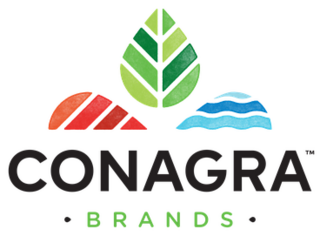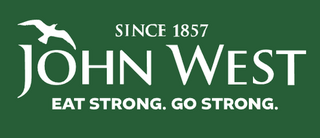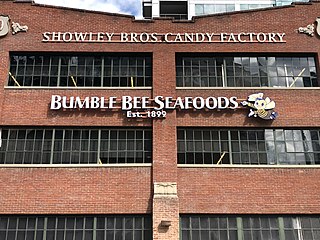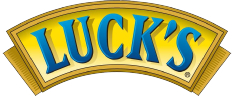
The Exxon Valdez oil spill was a major environmental disaster that made worldwide headlines in the spring of 1989 and occurred in Alaska's Prince William Sound on March 24, 1989. The spill occurred when Exxon Valdez, an oil supertanker owned by Exxon Shipping Company, bound for Long Beach, California, struck Prince William Sound's Bligh Reef, 6 mi (9.7 km) west of Tatitlek, Alaska at 12:04 a.m. The tanker spilled more than 10 million US gallons (240,000 bbl) of crude oil over the next few days.

Exxon Valdez was an oil tanker that gained notoriety after running aground in Prince William Sound, spilling her cargo of crude oil into the sea. On 24 March 1989, while owned by the former Exxon Shipping Company, captained by Joseph Hazelwood and First Mate James Kunkel, and bound for Long Beach, California, the vessel ran aground on the Bligh Reef, resulting in the second largest oil spill in United States history. The size of the spill is estimated to have been 40,900 to 120,000 m3. In 1989, the Exxon Valdez oil spill was listed as the 54th-largest spill in history.
The Seattle Seven is a group of seven seafood companies, operating in the city of Seattle, known for negotiating a secret agreement with Exxon Corporation in 1991, relating to punitive damages resulting from the Exxon Valdez oil spill. The companies, Aleutian Dragon Fisheries (ADF), Icicle Seafoods, North Coast Seafood Processors, North Pacific Processors, Ocean Beauty Seafoods, Trident Seafoods and Wards Cove Packing Co. were paid $63.75 million.

Conagra Brands, Inc. is an American consumer packaged goods holding company headquartered in Chicago, Illinois. Conagra makes and sells products under various brand names that are available in supermarkets, restaurants, and food service establishments. Based on its 2021 revenue, the company ranked 331st on the 2022 Fortune 500.

The Alaska Marine Highway (AMH) or the Alaska Marine Highway System (AMHS) is a ferry service operated by the U.S. state of Alaska. It has its headquarters in Ketchikan, Alaska.
The Valdez Blockade was a 1993 protest by Cordova fishermen who blockaded the Valdez Narrows in an attempt to obtain funding for research and restoration efforts relating to decreasing yields of pink salmon and herring in Prince William Sound following the Exxon Valdez Oil Spill. The fishermen were dissatisfied with the Exxon Valdez Oil Spill Trustee’s Council’s refusal to fund research efforts into the spill's effects on the fish. The blockade lasted three days, from August 20 to August 22. The blockade ended when Secretary of the Interior, Bruce Babbitt, promised funding for salmon and herring research. Findings from these studies resulted in additional compensation from Exxon.

Hunt's is the name of a brand of preserved tomato products owned by Conagra Brands. The company was founded in 1888, in Sebastopol, California, as the Hunt Bros. Fruit Packing Co., by Joseph and William Hunt. The brothers relocated to nearby Santa Rosa in 1890, and then to Hayward in 1895. This small canning operation grew rapidly, focused on canning the products of California's booming fruit and vegetable industries. By 1941, the plant shipped a hundred million cans of soup, fruits, vegetables, and juices annually.

The history of Alaska dates back to the Upper Paleolithic period, when foraging groups crossed the Bering land bridge into what is now western Alaska. At the time of European contact by the Russian explorers, the area was populated by Alaska Native groups. The name "Alaska" derives from the Aleut word Alaxsxaq, meaning "mainland".

Van Camp's is an American brand of canned bean products currently owned by ConAgra Foods, Inc. Their products typically consist of beans stewed in a flavored sauce. Van Camp's has for some time been the second-best selling brand of baked beans in the United States, competing with Bush's Baked Beans.

John West Foods is a United Kingdom-based seafood marketing company established in 1857, and currently owned by Thai Union Group of Thailand. The company produces canned salmon and tuna, as well as mackerel, sardine, herring, brisling, anchovies and shellfish.

The Alaska Packers' Association (APA) was a San Francisco-based manufacturer of Alaska canned salmon founded in 1891 and sold in 1982. As the largest salmon packer in Alaska, the member canneries of APA were active in local affairs, and had considerable political influence. The Alaska Packers' Association is best known for operating the "Star Fleet," the last fleet of commercial sailing vessels on the West Coast of North America, as late as 1927.

American Seafoods Group, LLC (ASG) is an American seafood company. Based in Seattle, Washington, ASG owns and operates six large catcher-processor vessels that harvest and process onboard fish caught in the U.S. waters of Alaska and the Pacific Northwest. American Seafoods Company is the largest harvester in the U.S. Bering Sea Alaska pollock fishery with approximately 45% of the catcher-processor market share.

Bumble Bee Foods, LLC, is an American company that produces canned tuna, salmon, other seafoods, and chicken under the brand names "Bumble Bee," "Wild Selections," "Beach Cliff," "Brunswick," and "Snow's." The brand is marketed as "Clover Leaf" in Canada. The company is headquartered in San Diego, California, United States. It is owned by FCF Co, Ltd. of Taiwan.

Luck's Incorporated was a food production company founded in Seagrove, North Carolina, in 1947, which produced a line of canned bean and other canned food products. For a period of time, it was one of the largest employers in the area and its canned food products were a staple in many Southern homes. It is a brand of Faribault Foods, after a divestment by ConAgra in 2010.

Thai Union Group PCL is a Thailand-based producer of seafood based products. It was founded in 1977, and was listed on the Stock Exchange of Thailand (SET) on 22 November 1994.
Pacific Seafood is one of the largest seafood companies in North America. The company launched in 1941 as a small, fresh seafood retail operation in Portland, Oregon, United States. The family-owned business expanded to become one of the largest vertically integrated seafood processing and distribution companies in the United States. Pacific's president and CEO, Frank Dulcich, is the grandson of the company's founder, also named Frank Dulcich. Pacific Seafood has over 2500 employees and is headquartered in Clackamas, Oregon.

International Home Foods (IHF) was an American manufacturer, distributor and marketer of food products, based in Parsippany, New Jersey. It was acquired in 2000 by ConAgra Foods and merged into ConAgra's Grocery Products division. IHF's best known brands were Chef Boyardee pasta products, Bumble Bee Seafood, PAM cooking spray, and Gulden's mustard.

Clover Leaf Seafoods Company is the leading marketer brand of canned seafood in the Canadian market owned by British equity firm Lion Capital LLP. Headquartered in Markham, Ontario, it sells canned, shelf-stable, and frozen goods under the Clover Leaf and Brunswick brands. The company's products include tuna, salmon, oysters, mussels, clams, shrimp, crab, lobster and sardines. Clover Leaf Seafoods was formerly owned by Canadian Connors Brothers Limited when merged with American counterpart brand Bumble Bee Seafoods in 2003, it was then sold to American equity firm Centre Partners in 2005, then sold to Lion Capital in 2010. In 2020, FCF Co, Ltd. (FCF), a privately held Taiwanese seafood conglomerate and an industry leader in sustainability and traceability, purchased Bumble Bee to become one of the world’s largest seafood companies.

Surimi is a paste made from fish or other meat. It can also be any of a number of East Asian foods that use that paste as their primary ingredient. It is available in many shapes, forms, and textures, and is often used to mimic the texture and color of the meat of lobster, crab, grilled Japanese eel, or shellfish.

















